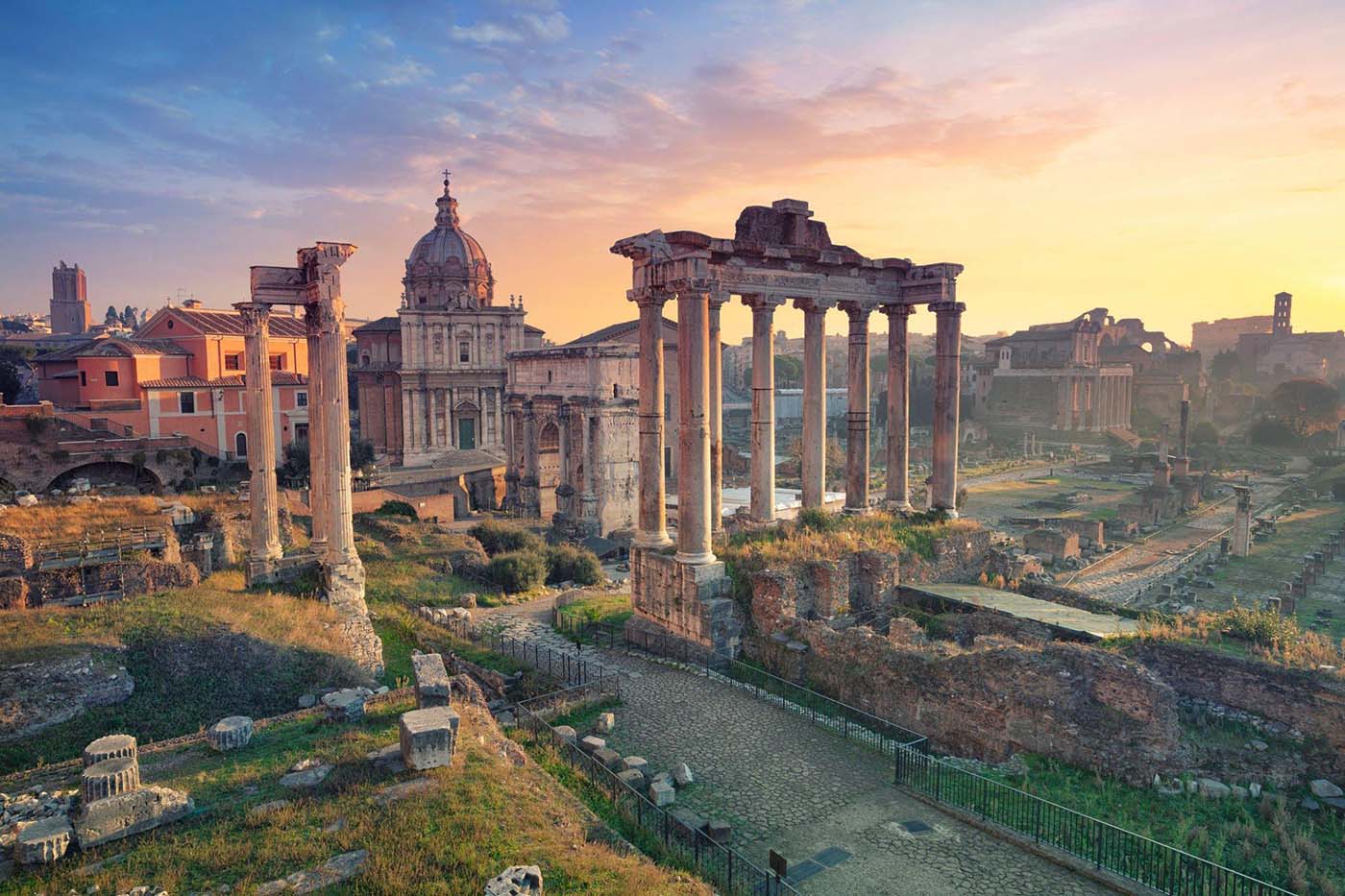When most of us think of Ancient Rome, images of a powerful and sophisticated empire spring to mind. Yet it can be easy to forget that the citizens were working on so much more than government policies and culture during their reign. As one of the oldest civilisations in existence, the Roman Empire was responsible for pioneering many products still used around the world today – from road networks in Europe to architects engineering buildings like never before. Here are six surprising Roman innovations that shaped civilisation for good – each with its own unique story!

The Romans invented concrete and used it extensively in construction projects
When one thinks of ancient Rome, images of grand structures such as the Colosseum and the Pantheon likely come to mind. What many may not realise, however, is that these feats of engineering were made possible in large part due to the development of concrete by the Romans. That’s right – concrete isn’t just a modern material!
Its durability and versatility made it a game changer for construction projects in ancient Rome, allowing for the creation of larger, more complex structures than ever before. While the exact recipe for Roman concrete has been lost to time, its impact on architecture and engineering is still felt today. Cementing their status as innovators, the Romans’ use of concrete continues to inspire and impress centuries later.
Roman numerals revolutionised math and commerce
In ancient times, the need for a standardised numerical system was crucial for conducting commerce and measuring quantities. The Roman numeral system, which originated in the Roman Empire, became the universal language of mathematics and trade.
Its simplicity and flexibility allowed for easy use and interpretation, leading to a revolution in the fields of business and math. According to the UNRV website, Roman numerals are a fascinating aspect of ancient Roman culture that continues to captivate people today and continue to influence and be present in modern-day architecture and legal documents. From the construction of structures to the trade of goods, Roman numerals were essential in calculating quantities and measuring the value of goods.
Even today, we continue to recognise and use this system in various applications, proving the enduring impact of Roman numerals on our world.
The Roman calendar was the first to divide the year into 12 months
The Roman calendar was a groundbreaking invention that revolutionised the way people kept track of time. Before the development of this calendar, time was measured in vague, nebulous ways that varied greatly depending on the culture and region. But the Romans were clever and practical people, and they saw the need for a more reliable way to track the months and seasons. Thus, they came up with the idea of dividing the year into 12 months, each with its own distinctive name and characteristics.
This system quickly caught on throughout the Roman Empire and soon spread beyond its borders, becoming a global standard that is still in use today. By creating such a simple yet elegant way of marking the passage of time, the Romans left an enduring legacy that continues to shape our understanding of the world around us. Also, fun fact: July and August are named after two famous Roman leaders, Julius Caesar and Augustus Caesar – a testament to the lasting influence of ancient Rome.

Roman plumbing systems were incredibly advanced for their time
Throughout history, the Romans were known for their incredible engineering feats – from their legendary roads to their iconic aqueducts. However, their advancements weren’t limited to these well-known structures. In fact, their plumbing systems were equally impressive and deserve recognition for their ingenuity. The Romans were pioneers in this field, developing a complex network of pipes, sewers, and drainage systems to ensure that their cities were clean and hygienic.
By creating a system of underground tunnels, the waste from homes and businesses could be safely and efficiently transported away from populated areas. Overall, their plumbing innovations were ahead of their time and continue to inspire new developments even today. This is yet another example of how the Romans were thinkers, inventors, and visionaries well ahead of their time.
They developed an efficient system of roads that connected their vast empire
One of the most significant achievements of the Roman Empire was its extensive system of roads. These well-maintained and strategically placed roads allowed for efficient travel throughout the empire, connecting major cities and facilitating trade and communication.
The Romans were able to construct such an impressive network through their use of advanced engineering techniques, such as layering crushed stones and concrete to create durable road surfaces. This infrastructure not only aided the growth and prosperity of their empire but also influenced road systems in other civilisations for years to come. The Romans truly paved the way for modern transportation.
Their advances in medicine helped save lives and improve the quality of life for many
The Roman Empire’s contribution to the field of medicine was groundbreaking, setting the stage for many practices still employed today. They placed a significant emphasis on public health, pioneering the concept of centralised healthcare. The Romans built hospitals, called valetudinaria, which catered to soldiers and the general public, exhibiting a robust understanding of the importance of accessible healthcare.
One key figure, Galen of Pergamon, made notable strides in understanding human anatomy and physiology. His extensive writings and teachings served as the basis for Western medicine for centuries. Romans also understood the importance of sanitation in disease prevention. They built aqueducts to supply fresh water and sewage systems to remove waste, highlighting their awareness of environmental health long before the germ theory of disease was established.
Furthermore, they initiated the concept of preventative medicine, encouraging practices such as balanced diets, exercise, and personal hygiene for holistic health. The Romans’ advances in medicine translated into higher life expectancies and better quality of life for their citizens, proving their remarkable influence in this field. Their innovative healthcare system and practices significantly shaped the medicine we know today.
In conclusion, the far-reaching influence of Roman innovation cannot be understated. From the conception of concrete and an intricate plumbing system to the establishment of a standard calendar and the invention of a numerical system, these accomplishments have left an indelible mark on the course of human history.
Furthermore, their advancements in road infrastructure and medicine not only facilitated the growth and success of the Roman Empire but also laid the groundwork for modern systems and practices. These remarkable contributions underscore the Roman Empire’s legacy as a beacon of innovation, shaping civilisation in countless ways that continue to resonate in the fabric of our modern world.








